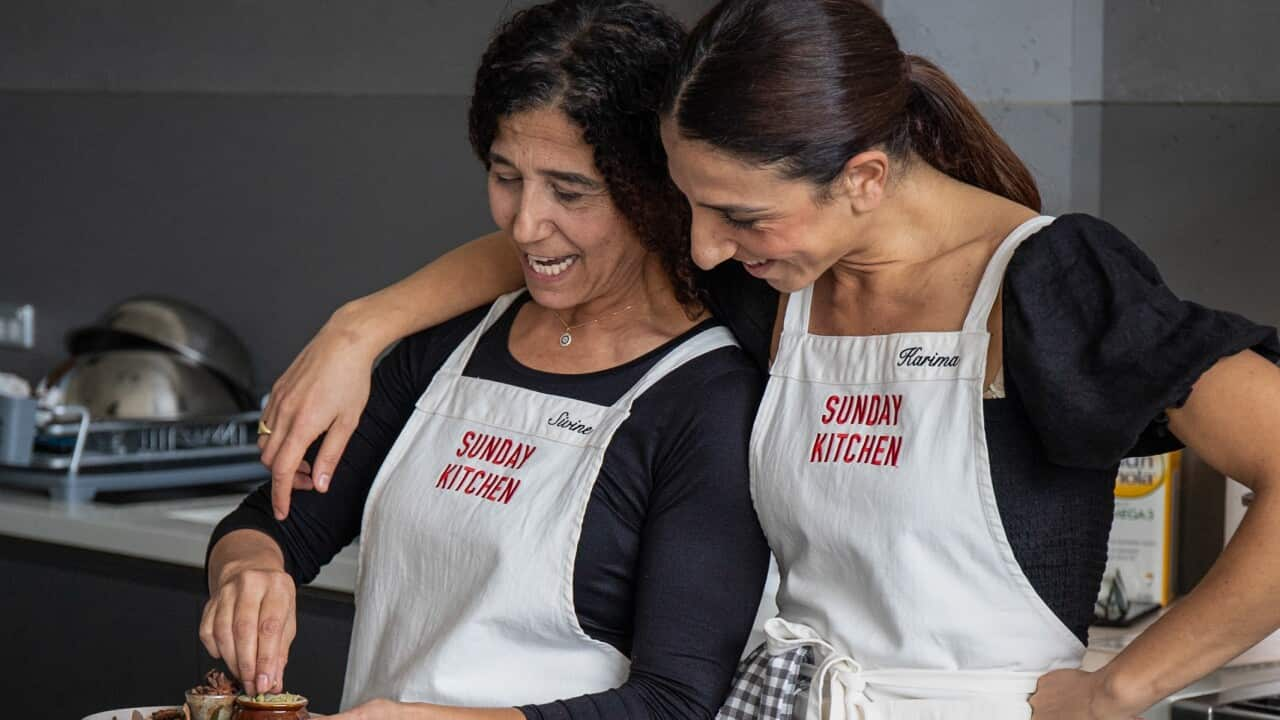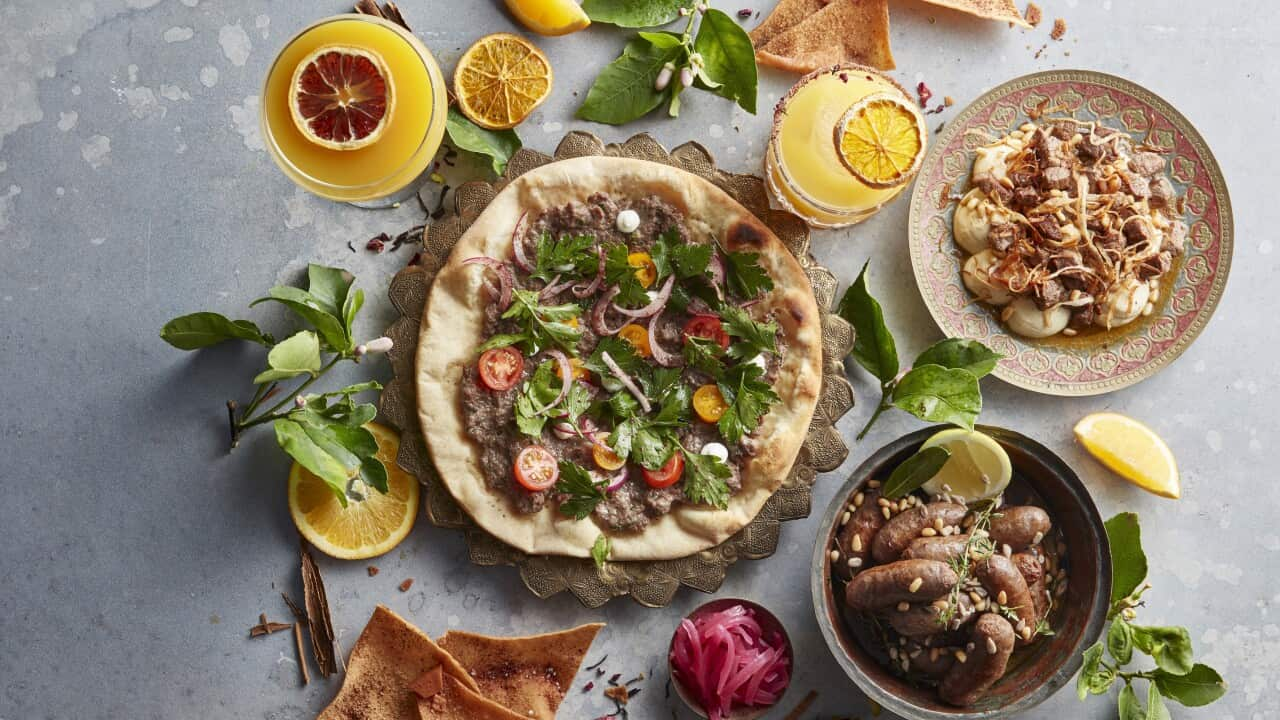--- Learn endless cooking tips and tricks on which airs weeknights on SBS Food at 7.00pm and 10.00pm, or stream it free on . Find Karima and Sivine on the 'Sunday lunch' episode. ---
Karima Hazim and her mother Sivine Tabbouch value not only the ingredients involved in creating a Lebanese gastronomic spread, but the history and process.
Tabbouch recalls, "We migrated to Australia in 1976, when I was 11 years old, because of the civil war that broke out in Lebanon in 1975."
She admits migration wasn't something her family had planned; they needed to escape.
"It wasn't like this is what we're going to do or, this is where we're going to live. We just grabbed our bags and fled. My daughters had an easier time [because they were born here]. They were afforded more opportunities than I was."
Although Hazim had an easier time assimilating, she continued to appreciate the life her grandparents and mother had to leave behind.
"Nobody wanted to leave Lebanon. Lebanon was and still is such a beautiful place," Hazim shares. "As children of migrants, it is so deep-rooted in us to love and appreciate the cultural heritage of our grandparents and parents."
I found the kitchen to be a very happy place because of this. There was magic there. We were like mum's guests.
A part of the cultural heritage that Hazim continues to embrace in Australia is the traditional Lebanese food she learned from her grandmother and mum.
"My grandparents had a formal sitting room where they would dry earthy jute mallow leaves. My grandmother would also dry all her herbs and would do all the traditional preserving practices," Hazim shares. Those smells are extremely nostalgic for me."
She also experiences nostalgia when she thinks about her mum's Sunday lunches. "Mum would wake up early, put on Lebanese folk music on the stereo and cook five dishes at the same time." While Tabbouch didn't really involve Hazim and her sisters in the cooking, they helped her prepare.
While Tabbouch didn't really involve Hazim and her sisters in the cooking, they helped her prepare.

Karima Hazim and her mother Sivine Tabbouch hope people take out of the sessions is an understanding of Lebanese people as well as food. Source: Laura Adamson
"I found the kitchen to be a very happy place because of this. There was magic there. We were like mum's guests," Hazim says.
Our guests
These days, Hazim and Tabbouch welcome guests to their event where they can cook Lebanese cuisine and learn more about Lebanese culture.
With sessions that run between three to four hours, Sunday Kitchen's cooking tutorials are comprehensive. "The knowledge people have of Lebanese food is stunted. Our cuisine is more than hummus or a bunch of barbecued meats," Hazim explains.
"Lebanese cooking is about shopping and preparing the day before. It's all about the process of creating soulful, nourishing food."
However, she says that Sunday Kitchen isn't a traditional cooking class "A lot of the stories [at Sunday Kitchen] centre around what it means to be a migrant and who we are as Lebanese people.
"The experience is a sharing of childhoods and memories, in as much as it is about sharing recipes."

Sunday Kitchen isn't a traditional cooking class. The experience is a sharing of childhoods and memories, in as much as it is about sharing recipes. Source: Laura Adamson
Reclaiming what's ours
Hazim and Tabbouch teach soulful, nourishing dishes such as kibbeh nayeh, a traditional mezza, which Hazim admits isn't given as much care in mainstream Lebanese restaurants.
They also teach how to make samke harra, an iconic spicy fish dish; and Tabbouch dip, an eggplant dip that Tabbouch invented, which is less intense than baba ganoush.
This is our way of reclaiming what is ours.
"Different regions in Lebanon have different ways of preparing the same dishes, based on their beliefs, agriculture and resources," Hazim says.
"What we hope people take out of the sessions is an understanding of Lebanese people as well as food, of why as migrants, we remain so attached to our food and cultural heritage.
"These were taken from us and, this is our way of reclaiming what is ours."
ENJOYING LEBANESE FOOD

Riz bi-Djaj (Lebanese poached chicken and rice)









